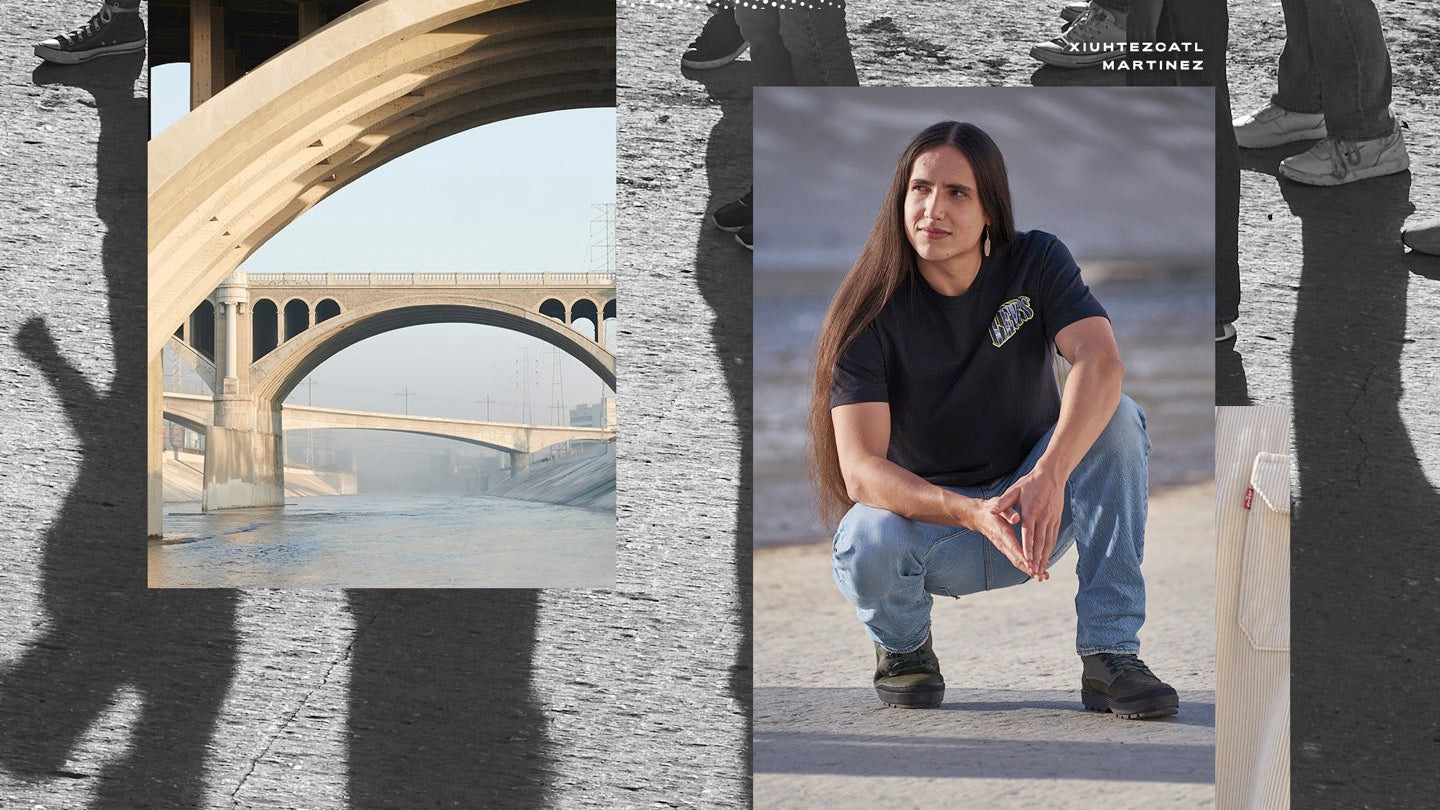
In conversation with climate activist, author and hip-hop artist Xiuhtezcatl. He uses his art, music, storytelling and activism to connect his generation and create change at the intersection of climate justice and Indigenous Sovereignty. Inspired by his mother’s own activism, Xiuhtezcatl has been a powerful voice in the climate justice movement since he was six years old. In 2019, he was recognized by Time Magazine’s The Next 100 Most Influential People list.
We had the chance to chat with Xiuhtezcatl about how to create positive change in the world.
What are we doing if
we’re not lifting up those
around us?”
-XIUHTEZCATL

Can you talk about the responsibility that comes with having such a strong voice within your community?
In the last year, I have taken a lot of time to reevaluate my relationship with my own leadership and to the movements I organize within.
I’ve continued to see that our ability to build power to address the issues in our world come from uplifting and organizing our communities, not in the accumulation of recognition and influence of individual leaders. What are we doing if we’re not lifting up those around us? There are so many blessings I grew up with that helped me to get to where I am, whether it's the community that I grew up in, having both parents in my life, being connected and having a relationship with my culture, with my ancestors, with ceremony.
All those privileges emphasize the importance of me putting on for my people and my community. My community gave me the tools to find my voice and now that I have that, reciprocity in that relationship is super important. And not just in my community but every community I interact with. I’m constantly pushing myself and my team to build regenerative and nourishing relationships with the communities we build with.
What role do you think brands can play in creating change?
I think brands have a lot of cultural, political and social power, and with that comes leverage that can be used to either exploit consumers, employees, our communities and the land, or to help build a new paradigm that shifts away from these extractive relationships.
I think the cultural element is really important. Brands don’t really shape culture as much as they emulate it. Brands ride trends, and follow what is exciting for people to be talking about in that moment.
It’s uncommon to see brands go deeper than the performative, surface level actions of “solidarity.” As consumers we hold more power than we think. We must hold brands accountable and challenge them to have their internal practices match what they’re saying on the surface.
The industry standards are actually very, very low, you know, for corporations doing a good job. And that's why it's important for folks to stand up and raise the bar.

How important is it for a brand to communicate with transparency?
I think it's really easy for brands to market themselves a certain way to appear aligned with whatever social causes are popular at the time. And I think it's so much more important to do the internal work, and also being transparent about what that looks like, sharing the journey. It's not like every party needs to be held to this perfect standard, because it probably won't happen overnight. But transparency around the journey that these brands are taking to being more aligned in practice with what people are demanding for the streets. And that is, I think, a journey that everybody can hold themselves in greater account to work hard for and I think it's great, there are some folks out there doing good work, but we can push further.
“Transparency around the journey that these brands are taking to being more aligned in practice with what people are demanding for the streets.”
-XIUHTEZCATL


You have a deep relationship with your community and see a huge value in being part of one. Tell us a bit more about what that means to you.
The takeaway from this last year is that change doesn't happen because of individuals, it doesn't happen in isolated incidents, it happens because of how we build power through community and solidarity for one another. And so I'd say for those of you who are looking for an entry point into this kind of work, I think a lot of it is through the relationships we build through how we are willing to expand our understanding of the world.
Committed to educating and understanding the systems that have gotten us to where we are right now. And through that, understanding what already exists to help us imagine alternatives and to build those alternatives.
So I think the first steps can really be looking at what communities exist that are demonstrating this alternative world that we want to move towards, and how do you involve yourself with that other kind of community? And it begins with those conversations, those first relationships that you build. It is harder to do this when you are alone.

And what would you say to someone who wants to take this next step towards change?
And what would you say to someone who wants to take this next step towards change? You're not alone in this. And really one of the first things you can do to get involved in organizing work is to reach out to people that are moving in the same direction, reach out and connect with those around you, and commit yourself to understanding the systems of injustice that have gotten us here because once we understand why we're here, where we are as a society or as a country or as a global community, those are part of the tools that help us navigate away from the dysfunction of our current world.


